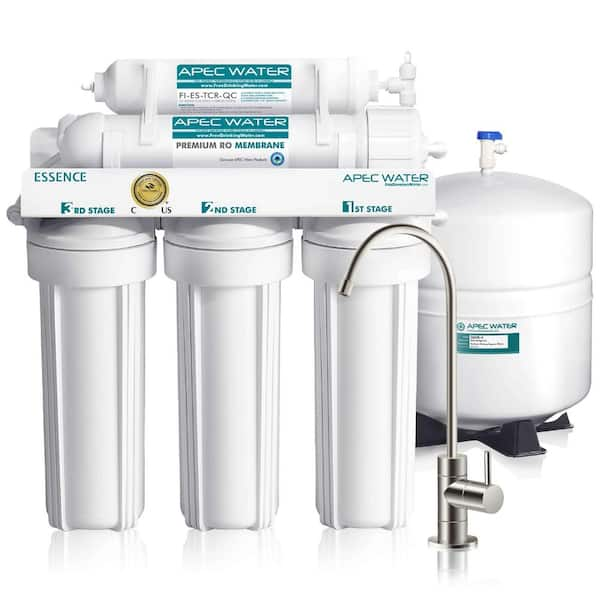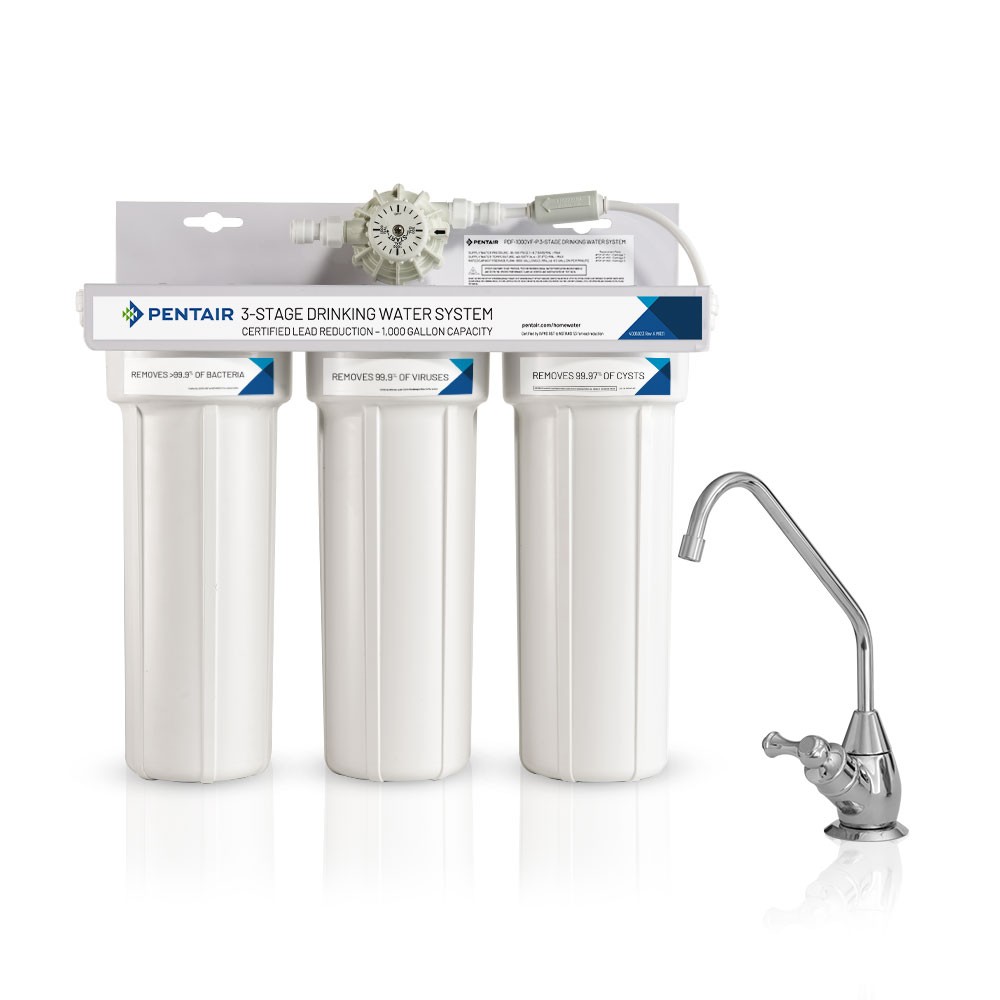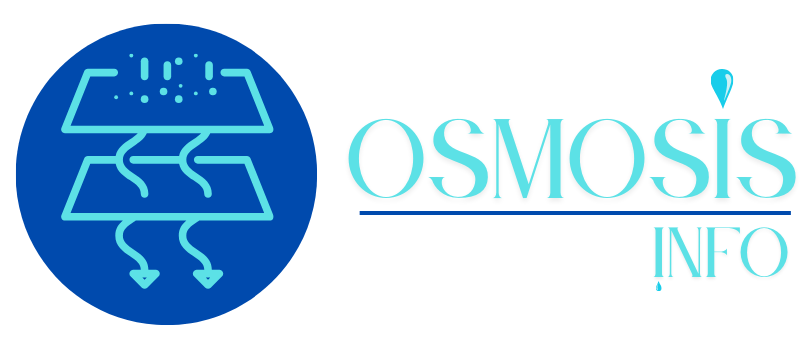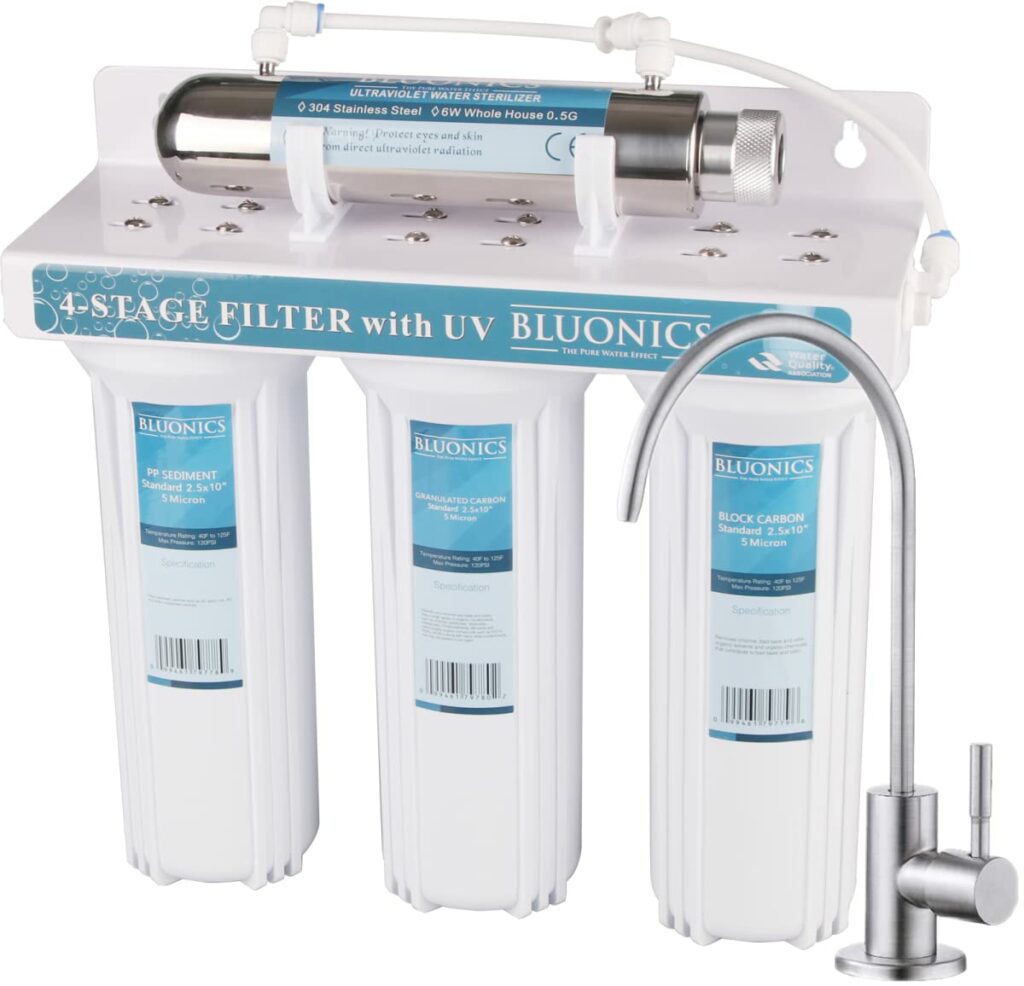The Hidden Dangers in Your Tap Water
I’ll admit, I never expected to find so many nasties in something as mundane as kitchen water. According to a study by Aquaporin, low-level lead exposure can stunt children’s cognitive development, and prolonged contact with chlorination compounds has been linked to respiratory issues [5]. One relieved parent even told me how her toddler’s eczema vanished within weeks of switching to a multi-stage filtration system—proof that quality treatment isn’t just a luxury, it’s a lifeline.
Because no single method removes every pollutant, savvy homeowners layer technologies: a coarse sediment trap, then activated carbon to absorb chemicals, followed by a reverse-osmosis membrane to catch dissolved metals and salts, and finally UV light or ceramic barriers to zap microbes [3][4]. For end-to-end protection, many turn to our guide to the whole-house filter and softener combo, or dive into the science behind reverse osmosis filtration. It’s not paranoia; it’s peace of mind.
Filtration Processes for Safe Water
Tiny sieves and charcoal aren’t flashy, but together they wage war on the unseen enemies in your tap. Mechanical filters—fine meshes or screens—catch sediments like rust and sand, stopping grit from muddying your mug. They’re the unsung heroes in faucets, pitchers, and under-sink systems, guarding finer membranes downstream from clogging and wear [1].
Activated carbon beds stage a chemical coup, adsorbing chlorine, volatile organic compounds, and unpleasant tastes by binding them within millions of microscopic pores. It’s why family coffee suddenly tastes smoother and why stubborn odors fade away. But carbon can’t handle heavy metals or microbes on its own—that’s where specialized media like activated alumina or ion-exchange resins step in, swapping harmful ions for harmless ones [3].

For the deep-clean champions, reverse osmosis (RO) systems force water through a semipermeable membrane that rejects bacteria, viruses, dissolved solids, and heavy metals, sending them down the drain while letting pure H₂O through [4]. UV sterilizers often tag-team with RO units, blasting any surviving microbes with germicidal rays [2]. These invisible guardians—physical, chemical, light-based—work in concert to turn municipal supply into crystal-clear reassurance [5].
Common Contaminants in Drinking Water
On a typical day, you might glimpse tiny flecks of rust or sand swirling in your glass—mechanical filters doing their job by trapping those larger particles [2]. But grit is just the appetizer. The main course includes chemical nasties like chlorine byproducts, pesticides, and volatile organic compounds (VOCs), which can impart off-flavors or even pose health risks over long exposure.
Activated carbon filters, with their porous skeletons, adsorb many of these chemicals—and even some heavy metals such as lead—dramatically improving taste and safety [1]. When you need to go deeper, reverse osmosis membranes step up, blocking up to 99% of dissolved salts, metals, and organic contaminants [3].
Then there are the invisible pathogens: bacteria, viruses, and protozoa that require dedicated disinfection. Ultraviolet (UV) systems zap these microorganisms by scrambling their DNA, ensuring safety without adding more chemicals to the mix [4]. One homeowner’s tale still gives me chills—she discovered lead particles in her tap, then combined carbon filtration with UV to eliminate them, restoring her trust in every glass.
Activated Carbon vs. Reverse Osmosis vs. UV Purification
Choosing your filtration champion is like picking a superhero: each has unique powers and limitations. Activated carbon filters act like sponges, soaking up chlorine, VOCs, and some heavy metals. “Our coffee never tasted so smooth,” raves one family after installing a carbon block under their sink—yet microbes and salts remain untouched [1].
Reverse osmosis goes further, pressing water through a semipermeable barrier that rejects bacteria, viruses, heavy metals, and up to 99% of dissolved salts. It’s the workhorse for those who demand near-pure water, though it wastes some water and asks for cartridge swaps now and then [3][4]. Curious about the nuts and bolts? Dive into our fundamentals of reverse osmosis filtration.
| Filter Type | Removes | Pros & Cons |
|---|---|---|
| Activated Carbon | Chlorine, VOCs, some heavy metals | Improves taste; no microbe removal |
| Reverse Osmosis | Bacteria, viruses, salts, metals | Near-pure water; higher waste water |
| UV Purification | Bacteria, viruses | Chemical-free; no sediment removal |

Installation Options: Faucet, Under-Sink, and Countertop Systems
Imagine pouring a glass of crystal-clear water right from your kitchen tap—no jerry cans, no fuss. Faucet-mounted filters clamp on in seconds, banishing chlorine, sediment, and odors with a simple twist. Many use activated carbon to trap VOCs and improve taste, while basic mesh screens keep grit at bay [5][1].
Under-sink units marry discretion with power, tucking away multiple stages—sediment, carbon block, sometimes even UV—behind your cabinet doors. Households report seeing up to 90% fewer contaminants at the dedicated faucet, and brands like Waterdrop and Aquasana make replacement as easy as swapping a cartridge every six months [2].
Countertop reverse osmosis systems bring RO’s muscle onto your surface without drilling. Plug them in, connect to your tap, and enjoy up to 99% lead and chlorine removal, according to recent tests [3][4]. They flush waste water away automatically, giving you professional-grade purity with minimal upkeep.
Essential Maintenance Tips To Keep Filtration Systems Running Smoothly
A few simple rituals can extend your filter’s life and keep every sip tasting fresh. Monitor mechanical pre-filters and sediment screens for pressure drops or visible clogging—swap them every three to six months to protect the finer stages [1]. I set calendar reminders—no excuses.
Activated carbon beds need love too. Over time they saturate, losing adsorption capacity and risking a back-release of trapped chemicals. Flushing before replacement helps dislodge particles; swap out carbon every six to twelve months to keep odors and chlorine at bay [3][2].
For advanced rigs—RO, UV, or ion-exchange—sanitization and component swaps are nonnegotiable. Rinse your RO membrane weekly, replace it every two to three years, swap UV bulbs annually, and backwash softeners on schedule. Detailed guidelines in our benefits of carbon filtration piece and our reverse osmosis systems guide can help you nail the process.
Cost-Effective Filtration Systems
Clean water shouldn’t empty your wallet. Pitcher and faucet-mounted filters often run under fifty dollars a year, removing chlorine and sediment with ease [1]. Step up to under-$100 carbon block systems and you’ll tackle VOCs, odors, and even low levels of lead [5].
In the $200–$500 range, compact reverse osmosis and UV combos wipe out heavy metals and pathogens, often with semi-annual filter changes. One customer couldn’t believe how crisp her tea tasted after installing a countertop RO system [4].

Whole-house solutions top out around $1,000–$2,000 but guard every faucet with sediment screens, carbon media, UV, and sometimes ion exchange. Yes, it’s an investment, but with professional installation and scheduled upkeep, you’re covered for years—and every drop feels like a mountain spring [2].
Portable Filtration Options for Travel and Emergencies
When adventure calls or disaster strikes, portability is key. Straw filters—tiny as toothpaste tubes—use hollow-fiber membranes to trap bacteria, protozoa, and sediment down to 0.1 microns, delivering up to a liter of clear water per minute [1]. No power, no pump—just suck and sip.
Prefer light-based disinfection? UV-C purifier pens zap pathogens in 90 seconds, scrubbing DNA without chemicals. I once watched a SteriPEN turn murky pond water into a transparent drink—battery life permitting, it’s magic on the trail [4].
For groups or preps, gravity bags and hand-pump systems blend microfiltration with activated-carbon stages, tackling sediment, chlorine taste, and VOCs. They mirror the multi-stage membrane tech of high-end kits—see our deep dive comparison to find your perfect match portable purifier showdown.
Emerging Innovations In Water Filtration
The next frontier is at the nanoscale. Graphene-oxide membranes boast sub-nanometer pores that reject salts, metals, and organics with lab-tested removal rates exceeding 99% [2]. Biomimetic filters, inspired by aquaporin channels in cell walls, promise high flow rates while blocking contaminants—an elegant nod to nature’s own engineering [5].
Smart filters embedded with IoT sensors monitor turbidity, pH, and microbial load in real time, pinging your phone when cartridges need swapping or settings require tweaking. Some self-flush or deploy UV-LED pulses on demand, shrinking maintenance chores almost to zero [4].
Energy efficiency and off-grid design are heating up too: solar-powered UV reactors and modular filters you can camp with or install under your sink, paired with RO or tankless RO modules, bring laboratory performance anywhere you need it [3].
Key Takeaways: Why Proper Water Filtration Matters
Clean water is more than convenience—it’s the cornerstone of health, vitality, and peace of mind. Reliable filtration can remove up to 99% of harmful particles—from sediment and lead to bacteria and microplastics—protecting every sip you take [2].
By combining mechanical, chemical, and UV layers, you’re not just filtering water—you’re crafting a sanctuary in every drop. Whether you choose a simple pitcher or a whole-house powerhouse, regular maintenance and smart upgrades ensure your loved ones drink with confidence. Here’s to glasses always full of nothing but pure, refreshing possibility.
“`html
Complete Top Picks Comparison – 20 Products
| Product | Source | Price | Rating | Image | Buy |
|---|---|---|---|---|---|
| Brita Water Filter Pitcher 6-Cup Capacity, BPA Free, White | Amazon | $24.53 | ★★★★★ |  | Buy on Amazon |
| LifeStraw Home– Water Filter Pitcher 7-Cup, Glass with Silicone Base, Stormy Blue | Amazon | $51.96 | ★★★★☆ |  | Buy on Amazon |
| Waterdrop 40-Cup Large Water Filter Dispenser 200-Gallon Long-Life, BPA Free, Black | Amazon | $40.99 | ★★★★☆ |  | Buy on Amazon |
| Brita UltraMax Large Water Dispenser Large 27-Cup | Amazon | $37.97 | ★★★★★ |  | Buy on Amazon |
| Waterdrop Water Filter Pitcher 10-Cup Large Water Filter Pitcher, Blue | Amazon | $19.99 | ★★★★★ |  | Buy on Amazon |
| Waterdrop Alkaline Electric Water Filter Pitcher Rechargeable Water Dispenser, 15-Cup | Amazon | $40.88 | ★★★★☆ |  | Buy on Amazon |
| ZeroWater 32-Cup Ready-Read 5-Stage Dispenser with Instant Read Out – 0 TDS | Amazon | $45.99 | ★★★★☆ |  | Buy on Amazon |
| Waterdrop 35-Cup Slim Water Filter Dispenser Large Capacity, Black | Amazon | $35.99 | ★★★★★ |  | Buy on Amazon |
| Brita Large Water Filter Pitcher 10-Cup Capacity, Bright White | Amazon | $30.88 | ★★★★★ |  | Buy on Amazon |
| Waterdrop Water Filter Pitcher 7-Cup Capacity, Elfin, Pink | Amazon | $16.99 | ★★★★★ |  | Buy on Amazon |
| Volantex New Spitfire RC Plane EPP 400mm Wingspan RC Fighter | AliExpress | $31.92 | N/A |  | Buy on AliExpress |
| JHD for JJRC C8818 Car 1:18 2.4G Pickup Remote Control Off road Vehicle | AliExpress | $31.83 | N/A |  | Buy on AliExpress |
| Rc Helicopter Remote Control Aircraft Goosky RS4 Venom Combo KIT | AliExpress | $156.23 | N/A |  | Buy on AliExpress |
| WLtoys 124019 1:12 4WD RC Racing Car 55Km/H High Speed Off-Road Drift Car | AliExpress | $42.73 | N/A |  | Buy on AliExpress |
| Shengmilo MX06 city Electric Bike 1000W Urban Bicycle Fat bike electric 26″ | AliExpress | $328.09 | N/A |  | Buy on AliExpress |
| SCY 16101 PRO 4WD 1:16 RC Car 70km/H 4×4 High Speed Floating RC Car | AliExpress | $28.33 | N/A |  | Buy on AliExpress |
| 16103 Fast Rc Cars 50km/h 1/16 Off Road Waterproof Remote Control Monster Truck | AliExpress | $31.92 | N/A |  | Buy on AliExpress |
| FMS RC Airplane 64mm Futura Tomahawk Sport Trainer Ducted Fan EDF Jet | AliExpress | $74.73 | N/A |  | Buy on AliExpress |
| Shengmilo MX06 city Electric Bike 48V17.5AH Battery Adult E-mountainou bike | AliExpress | $328.09 | N/A |  | Buy on AliExpress |
| RC ERA C190 1:30 H145 Scale RC Helicopter 6-Axis Gyro Flybarless Helicopter RTF | AliExpress | $77.36 | N/A |  | Buy on AliExpress |
“`

